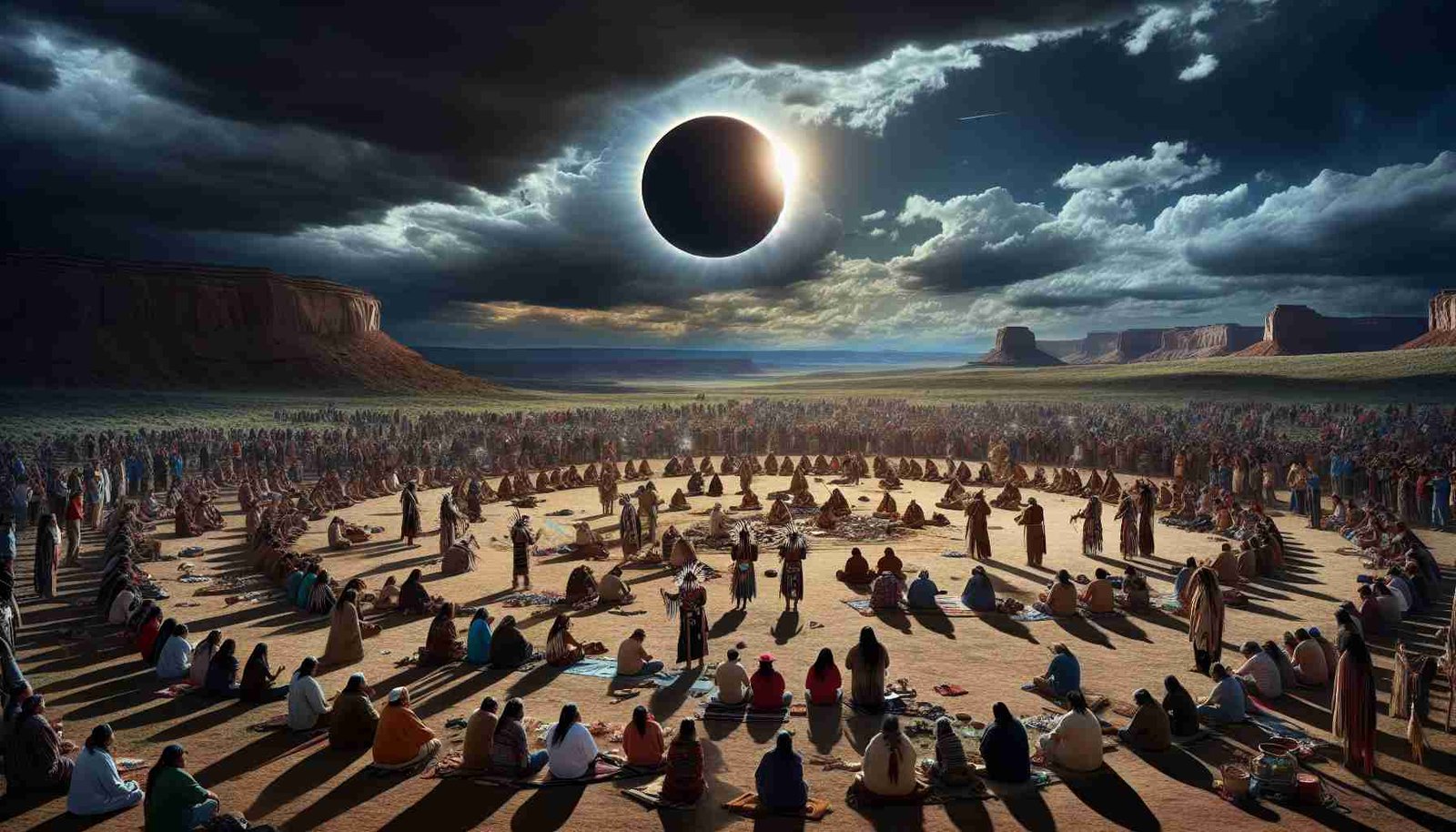
As anticipation builds for the total solar eclipse on April 8, people across North America are preparing to witness the celestial spectacle. The approach to the eclipse itself varies, with some people planning viewing parties and making sure to wear safety glasses. However, among indigenous communities, especially the Navajo (Diné), solar eclipses have deeper spiritual meanings that are intertwined with their cosmological beliefs and customs.
The Navajo cosmic perspective is holistic and sacred, encompassing an ever-moving network of relationships and processes. For them, astronomy is not just a scientific endeavor, but also a spiritual journey that instructs them how to live in harmony with the world around them. While mainstream celebrations may involve cheers and excitement throughout the moment, the Navajo Nation takes a more contemplative and reverent stance, using the event as a time of renewal and connection with the wisdom of their ancestors. .
Dr. Nancy C. Maryboy of the Institute for Indigenous Education believes that each aspect of the universe is not only contained within the whole, but also includes the whole, and that each aspect of the universe is a dynamic entity essential to Navajo life and understanding. It claims to be a spiritual system. The stories and teachings passed down through the generations are embedded in actual astronomical phenomena, which differ greatly from Western interpretations.
Navajo people are traditionally not encouraged to look directly at the sun during a solar eclipse to prevent eye damage, but they do encourage people to turn inward, respect nature’s cycles, and let events unfold. is encouraged. Modern advances have introduced solar viewing glass options, but the emphasis is still on internal reflection and respect. In addition to witnessing a rare celestial phenomenon, this solar eclipse provides an opportunity to recognize and appreciate the rich complexity of the Navajo astronomical tradition and their approach to living in harmony with the universe.
The importance of solar eclipses in industry and culture
The total solar eclipse on April 8th is more than just an awe-inspiring natural phenomenon. It has a notable impact on various industries and cultural practices. When it comes to the eyewear industry, there is a surge in demand for eclipse glasses, which usually have to meet international safety standards to protect the eyes. Companies that manufacture and sell these specialized products often see an increase in sales as the date of the eclipse approaches.
The solar eclipse also has a big impact on the tourism industry. Destinations along the path of totality are flooded with visitors to catch a glimpse of the eclipse in all its glory. While this could provide a significant economic boost for local businesses, accommodation providers and tourism operators, it could also pose challenges in terms of crowd control and environmental impact.
Market forecasts and industry challenges
Market forecasts show that interest in astronomical phenomena continues to grow, pointing to positive prospects for industries such as astronomical tourism and educational programming on astronomical phenomena. However, increased consumer interest has created a need for public education about safe viewing methods and potential scams selling counterfeit eclipse glasses that do not provide adequate eye protection.
There are also broader issues to consider, such as the environmental impact of large gatherings in areas that are not equipped to accommodate large numbers of tourists. Additionally, the integrity of indigenous customs and beliefs surrounding solar eclipses must be maintained and respected within the commercialization of these events.
To learn more about the astronomy industry and the production of science materials, visit the websites of related organizations such as the National Aeronautics and Space Administration (NASA) and the International Astronomical Union (IAU).
The balance between commercial opportunities, cultural considerations, and environmental stewardship remains a challenge, as frequent visible celestial events such as solar eclipses provoke widespread excitement and deep reflection in diverse communities across North America.

Michał Rogucki is a pioneer in the field of renewable energy, particularly known for his work on solar power innovations. His research and development efforts have greatly improved the efficiency and sustainability of solar panels. Mr. Roggi’s commitment to green energy solutions is evidenced by his advocacy for integrating renewable resources into the national power grid. His groundbreaking research not only contributes to the scientific community, but also plays an important role in promoting environmental sustainability and energy independence. Mr. Rogucki’s influence extends beyond academia, influencing industry practices and public policy regarding renewable energy.

